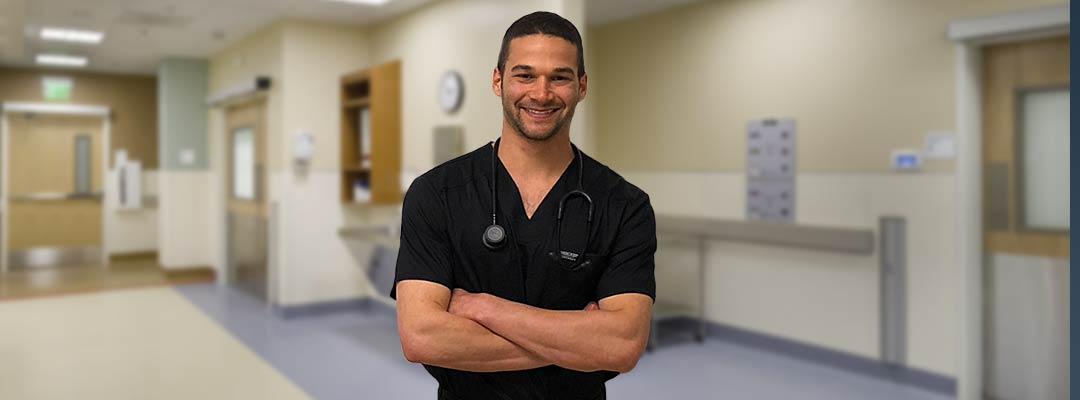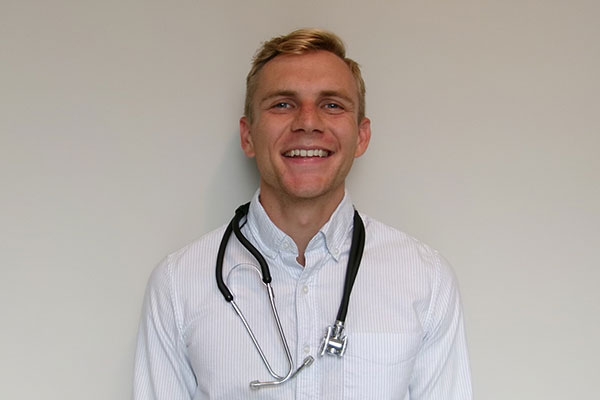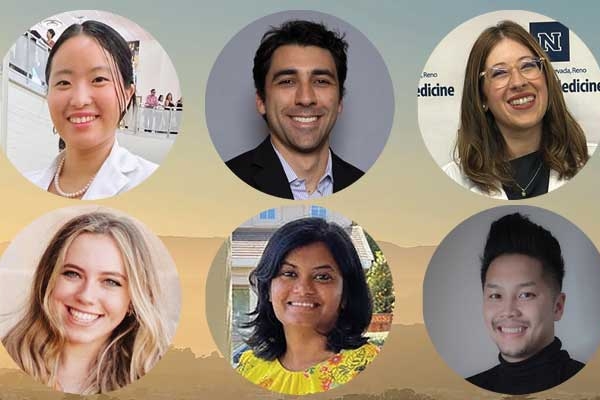The path to working in the health professions can be a winding road.
There are so many questions to ask of yourself:
- Do I have the necessary courses under my belt to apply to a health professions school?
- Do I have enough health career experience?
- Do I know which field of medicine I want to pursue?
- Do I have a passion to work with patients—either directly or indirectly?
And the list goes on.
For Alexander Lipson, he only had the answer to number 4—an emphatic “yes!”
For the other three? Well, that’s when he turned to our Post-Baccalaureate Health Professions Program.
Answering Question #1
“To be completely honest,” Alexander recalls, “I wasn’t exactly sure what my route was going to be. I knew I wanted to take some of those difficult science classes that gave me trouble during my undergraduate degree, but the Health Professions program really helped me to narrow my path and make decisions in terms of direction. Ultimately, my first goal was just to start taking classes and obtain health care experience and let the rest unfold naturally.”
So with the help of staff advising—a perk of being accepted into the Health Professions program—Alexander started tackling what turned out to be a pretty short list of courses:
- Microbiology Laboratory
- Medical Microbiology
- General Human Anatomy (shout-out to Dr. Victor Asemota)
- Human Anatomy Laboratory (shout-out to Dr. Emmanuel Segmen)
- General Chemistry Laboratory I
- General Chemistry I
“The instructors whom I was lucky enough to have were all fantastic,” Alexander effuses. “I made one of my closest friends in my Chemistry class.
“The academic staff were helpful and supportive: I was able to receive counseling as if I were still at an undergraduate institution,” Alexander continues about his experience in the program. “Sometimes this process can seem daunting, and to have someone within arm’s length to give advice and direction really made a difference in terms of my anxiety level!”
On to Answering Question #2
Many health professions graduate schools are looking for their applicants to show passion for their intended field.
"Medical school is such a huge investment of your time, your emotions and finances,” says Dr. Emily Singer, a MedSchoolCoach adviser and General Surgery resident at the Ohio State University, as well as a Post-Baccalaureate Health Professions Program alumna. “I see a lot of applicants who have trouble convincing me on their application that they're fully committed. Getting perspectives from people in the field can really help you understand what your future may look like and show the admissions committee your commitment."
So how did Alexander show his passion? By getting experience working at Marin Community Clinics while taking our courses. Starting out as a volunteer medical scribe, Alexander worked with a podiatrist and a chiropractor. As he racked up more hours, Alexander transitioned from a volunteer to an employee and began working with more specialists.
“Eventually, I worked consistently with an infectious-disease specialist, an endocrinologist, a pediatrician and my previous two specialists,” Alexander recalls. “I started working full time as a scribe and a referral coordinator before leaving for school.”
For school? Yes! Because of all of his hard work, commitment and passion, Alexander gained admissions to Johns Hopkins School of Nursing!
My prerequisite courses were rigorous but prepared me for how hard nursing school is.
Figuring Out the Answer to Question #3
Why nursing?
“I wanted direct-patient contact as a career,” Alexander answers. “I wanted to be able to help someone during the toughest time in their life and watch them regain the ability to do what they love. Being at the bedside and having the opportunity to change someone’s life like that is ultimately why I chose nursing.”
Studying at Johns Hopkins is rigorous and demanding. Classes normally start at 8 am. For in-clinic days, Alexander promptly shows up at 6:45 am and spends the next eight hours shadowing and learning. But when he returns home, he cracks open the books and gets to studying—a schedule he is well-prepared for.
“My prerequisite courses were rigorous but prepared me for how hard nursing school is,” Alexander muses. “The immense amount of information you are expected to learn is similar to the difficult nature of the prerequisites.
“The courses are rigorous and you have to study hard to do well,” he concludes. “But the post-bacc program showed me that if you work hard enough in those tough science classes, it just matters how bad you want it and the effort you are willing to put in in order to get to where you want to be.”
And where does he want to be?
“I’m not really sure as of right now. Eventually, I will probably pursue my doctorate degree, but I’m unsure what field it will be in. I have interests in H.I.V., anesthesia, chronic pain management, and cardiac and neurological ICU. I’ll learn more about myself as I go through nursing school.”



